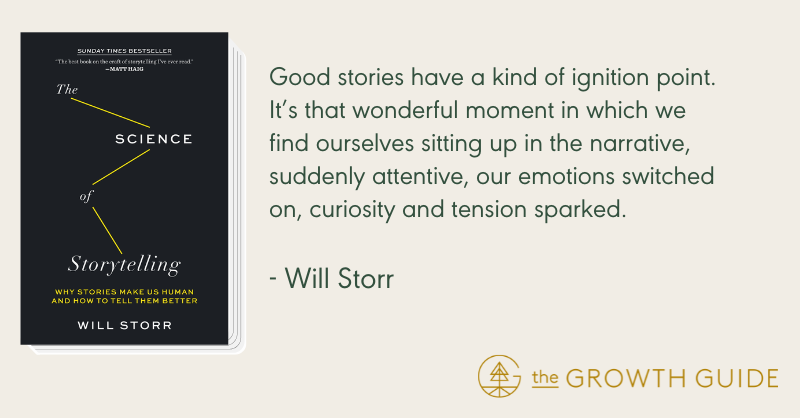The Power of Storytelling: 9 Lessons to Help You Be a Better Storyteller
Storytelling is an important skill that is often overlooked. Learn the two types of motivations, the power of flaws, and more in this blog about 9 lessons to help you be a better storyteller.

Clint Murphy
I simplify psychology, success and money by sharing advice from millionaires, expert authors and my life.

-
The most important skill you were never taught:
— Clint Murphy (@IAmClintMurphy) June 13, 2023
Storytelling
Here's 9 Lessons to help you be a better Storyteller: pic.twitter.com/iqshBBfjFL -
• Motivations
— Clint Murphy (@IAmClintMurphy) June 13, 2023
In storytelling, there are two types of motivations.
Approximate motivations refer to superficial wants.
Ultimate motivations refer to:
• Survival
• Connection
• Status needs
These desires resonate on a subconscious level and draw you into a story. -
• Power of Flaws
— Clint Murphy (@IAmClintMurphy) June 13, 2023
Flawed characters have:
• Inner demons
• Personal failings
• Significant weakness
They make poor choices.
Flawed characters are more relatable than perfect ones because we all have flaws.
Our flaws make us human and we can identify with them. -
• Power of Goals
— Clint Murphy (@IAmClintMurphy) June 13, 2023
Heroes in stories and in life have a shared essential quality - We are directed toward goals.
Your protagonist has to have a goal, because the goal is what drives the story.
When characters have a goal, write in an active voice on their hero's journey. -
• Power of Change
— Clint Murphy (@IAmClintMurphy) June 13, 2023
Whether it's a 60-word tabloid or a 350,000-word epic, every story we hear amounts to something changed.
Characters are the most important thing that changes in a story.
The changes can be subtle or the character can change the world around them. -
• Power of Metaphors
— Clint Murphy (@IAmClintMurphy) June 13, 2023
George Orwell said a newly invented metaphor assists thought by evoking a visual image.
Based on the way the brain processes story, the brain needs visual information to create a visual world.
And, metaphors force it to imagine what you're describing. -
• Be the Main Character
— Clint Murphy (@IAmClintMurphy) June 13, 2023
Use the magic of storytelling in your life.
You don't have to be an extra in your own story. You're the main character.
You're in control of your life. It happens for you, not to you.
Let's change how you proactively act to get what you want in life. -
• The Psychology of Status
— Clint Murphy (@IAmClintMurphy) June 13, 2023
If a character is too perfect, it creates envy in us, but, it's subconscious.
When you see someone with lower status than you, you'll feel more empathy than for a high-status person.
This is why you love to see the powerful taken down in stories. -
• Importance of Ignition Points
— Clint Murphy (@IAmClintMurphy) June 13, 2023
The ignition point is when a story catches fire.
In a good story, there's something that will happen when you'll go Fuck, I can't put this book down.
It's when the story directly connects with the character's flawed idea about the world. -
• The 5 Act Structure of Storytelling
— Clint Murphy (@IAmClintMurphy) June 13, 2023
Good stories have a specific structure.
The 5 Acts of a story are exposition, rising action, climax, falling action and conclusion.
The five acts show the full transformation of a character.
From Shakespeare to Jaws, you'll see 5 Acts. -
TL;DR:
— Clint Murphy (@IAmClintMurphy) June 13, 2023
Here are 9 lessons for you to be a better Storyteller:
• Motivations
• Power of Flaws
• Power of Goals
• Power of Change
• Power of Metaphors
• Psychology of Status
• Be the Main Character
• Importance of Ignition Points
• The 5 Act Structure of Storytelling -
This has been a "cheat sheet" on how you can be a better Storyteller.
— Clint Murphy (@IAmClintMurphy) June 13, 2023
Listen to my conversation with @wstorr on the Growth Guide Podcast (Link in Bio).
If you found value, please:
1. Follow @IAmClintMurphy
2. Retweet the 1st Tweethttps://t.co/vYLbXobD93
